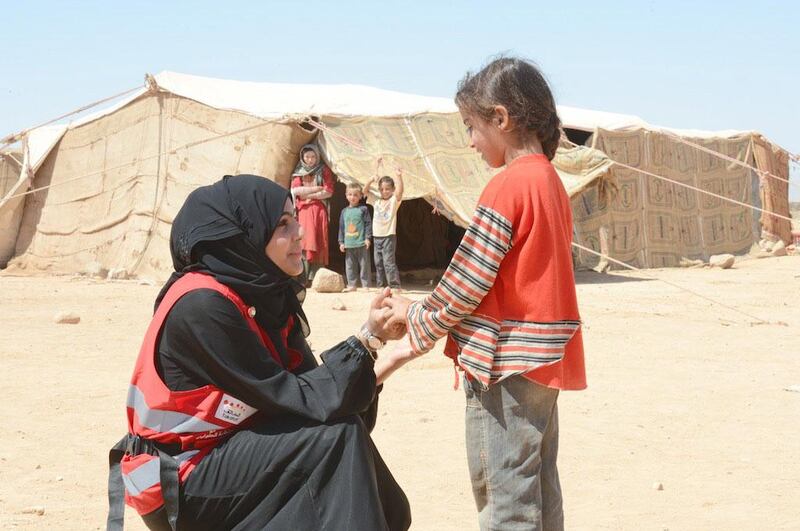Nearly two and a half years ago, the headline on a column of mine read: It's time the world heard the real story of this country. In it, I bemoaned the way in which the foreign media often tends to present a less-than-balanced picture of the UAE, focussing on points to criticise, sometimes fairly, while overlooking the positive aspects of the country's development, from infrastructure to education, from cultural and religious tolerance to conservation.
It’s fair to note, though, that this is often due to the fact that we’re not very good at telling our own story, or, in a colloquial phrase, "blowing our own trumpet".
A couple of incidents over the last few months have brought that point home to me.
Most people in the UAE, I suspect, are well aware that the country has a remarkable record as a donor of international assistance. Much is provided as an emergency response to humanitarian catastrophes, both natural and man-made, with more in the form of soft loans and grants for development projects. Overall, year after year, it's a pretty impressive amount, from which hundreds of thousands of people benefit.
Bodies like the United Nations identify the UAE as one of the most generous donors in the world, in terms of the aid provided per capita each year. We read of that in our media; it's frequently mentioned in speeches. It's part of who we are as a country.
Yet, to my surprise, I find that abroad, among people who are themselves actively engaged in the sphere of overseas aid, there’s sometimes little knowledge of what we view as a routine, normal part of the UAE’s engagement with the outside world.
Last summer, during a visit home to the British Channel Island of Jersey, I met with the chairman of Jersey Overseas Aid, the island's foreign aid agency. I suggested to her that perhaps, on the next visit by a Jersey Minister to the UAE, it might be useful to seek a meeting with our Minister for International Co-operation to see whether there was scope for collaboration in aid projects, in Jordan, for example, where both Jersey and the UAE are providing help to Syrian refugees. To my amazement, the JOA Chairman was not aware, at all, of the UAE's extensive aid programmes, though I've now sent her a large amount of data.
Last month, a delegation of British Members of Parliament visited the UAE for a familiarisation tour. One of the MPs sits on the House of Commons Select Committee on International Development, the Parliamentary body that oversees the work of the UK’s Department for International Development, DfID.
I gather that, during a meeting with our Minister for International Co-operation, Reem Al Hashimy, this MP asked whether the UAE did anything much in terms of overseas aid and humanitarian assistance. If the Minister’s jaw dropped, metaphorically or otherwise, one can forgive her for her response.
It’s all very well for us to express surprise that a British politician engaged on overseas aid issues is so poorly informed – not least because the UK and the UAE often collaborate during humanitarian disasters. Of course the MP concerned should have known at least something about what we do, even if her main focus is on the UK’s record.
At the same time, in Jersey, in the UK and perhaps elsewhere too, there’s clearly a need for the UAE to work harder to explain what we’re doing. While we may engage with governments and relief agencies, the message about our aid programmes is clearly not getting through to precisely the audiences that should be interested.
That’s not good enough. It’s all very well for us to pat ourselves on the back about what is, after all, a pretty creditable record on humanitarian and development aid, but we obviously need to do much more to ensure that it’s more widely known, and understood, abroad.





